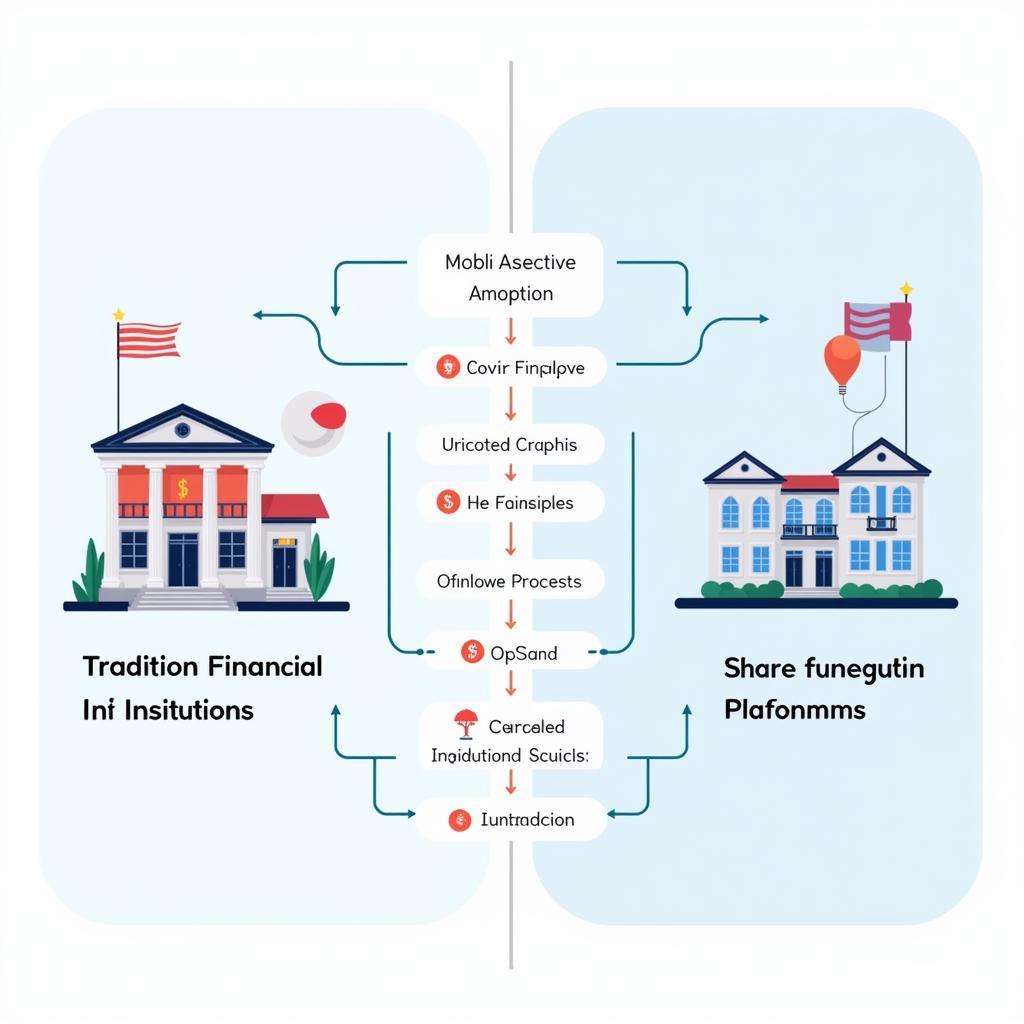The sharing economy’s influence on financial services has become an increasingly common theme in IELTS Writing Task 2 examinations. Based on analysis of past papers and current trends, this topic has appeared in various forms, particularly in questions about technological advancement and economic changes. As How the sharing economy is transforming industries demonstrates, this subject’s relevance continues to grow.

Task Analysis
Some people believe that the sharing economy (such as ride-sharing and home-sharing platforms) has revolutionized traditional financial systems. To what extent do you agree or disagree with this statement?
This question requires examining how peer-to-peer platforms have impacted conventional financial services. You should:
- Take a clear position
- Provide specific examples
- Discuss both benefits and challenges
- Consider long-term implications
Band 8 Sample Essay
The sharing economy has fundamentally transformed traditional financial systems by introducing innovative peer-to-peer solutions that challenge established institutions. I strongly agree that this revolution has created profound changes in how people conduct financial transactions and access services.
Firstly, sharing platforms have democratized access to financial opportunities. Similar to how importance of credit unions for community growth has empowered local communities, peer-to-peer lending platforms enable individuals to borrow and lend directly, bypassing traditional banks. This has created new investment opportunities and reduced dependency on conventional financial institutions.
Moreover, digital payment systems integrated into sharing platforms have revolutionized transaction methods. These innovations have eliminated the need for cash transactions and introduced seamless payment experiences. For instance, ride-sharing apps automatically handle payments, while how cryptocurrency trading platforms affect markets shows how digital currencies are further disrupting traditional banking.
However, this transformation also presents challenges. The sharing economy’s rapid growth has created regulatory concerns regarding consumer protection and financial stability. Traditional financial institutions must adapt their business models to remain competitive, while importance of financial advisors for wealth management becomes increasingly relevant in this complex landscape.
In conclusion, the sharing economy has indeed revolutionized financial systems by introducing new models of transaction and service delivery. This transformation continues to reshape the financial sector, requiring both adaptation and innovation from traditional institutions.
Band 6.5 Sample Essay
I agree that the sharing economy has changed traditional financial systems in many ways. These changes can be seen in how people use money and access financial services today.
One main change is how people pay for things. Before, people mainly used cash or credit cards, but now they can use mobile apps and digital wallets. This makes payments easier and faster. Many people now prefer using sharing platforms because they are convenient.
The sharing economy has also changed how people borrow money. Instead of going to banks, people can use online platforms to borrow from others directly. This helps people who might not get loans from traditional banks. However, there are some risks because these platforms might not be as safe as banks.
Some problems exist with these changes. Not everyone trusts new financial technologies, and some people worry about security. Also, older people might find it difficult to use these new systems.
In conclusion, while the sharing economy has changed financial systems significantly, both good and bad effects need to be considered. Traditional banks need to change to keep up with these new developments.
Score Analysis
Band 8 Essay Strengths:
- Sophisticated vocabulary and complex sentences
- Clear organization and coherent arguments
- Specific examples and detailed analysis
- Balanced perspective with counterarguments
- Strong academic tone
Band 6.5 Essay Limitations:
- Simpler vocabulary and structure
- Basic examples without detailed explanation
- Limited range of linking devices
- Less sophisticated analysis
- More informal tone
Key Vocabulary
- Democratize (v) /dɪˈmɒkrətaɪz/ – make accessible to everyone
- Innovative (adj) /ˈɪnəveɪtɪv/ – introducing new methods
- Peer-to-peer (adj) /pɪər tu pɪər/ – direct interaction between parties
- Regulatory (adj) /ˈreɡjələtɔri/ – controlling or supervising
- Transformation (n) /ˌtrænsfəˈmeɪʃən/ – complete change
- Disruption (n) /dɪsˈrʌpʃən/ – disturbance or problems
- Integration (n) /ˌɪntɪˈɡreɪʃən/ – combining of different parts
For practice, try writing your own essay addressing how importance of tracking cash flow for budgeting relates to the sharing economy’s impact. Share your practice essays in the comments for feedback and discussion.